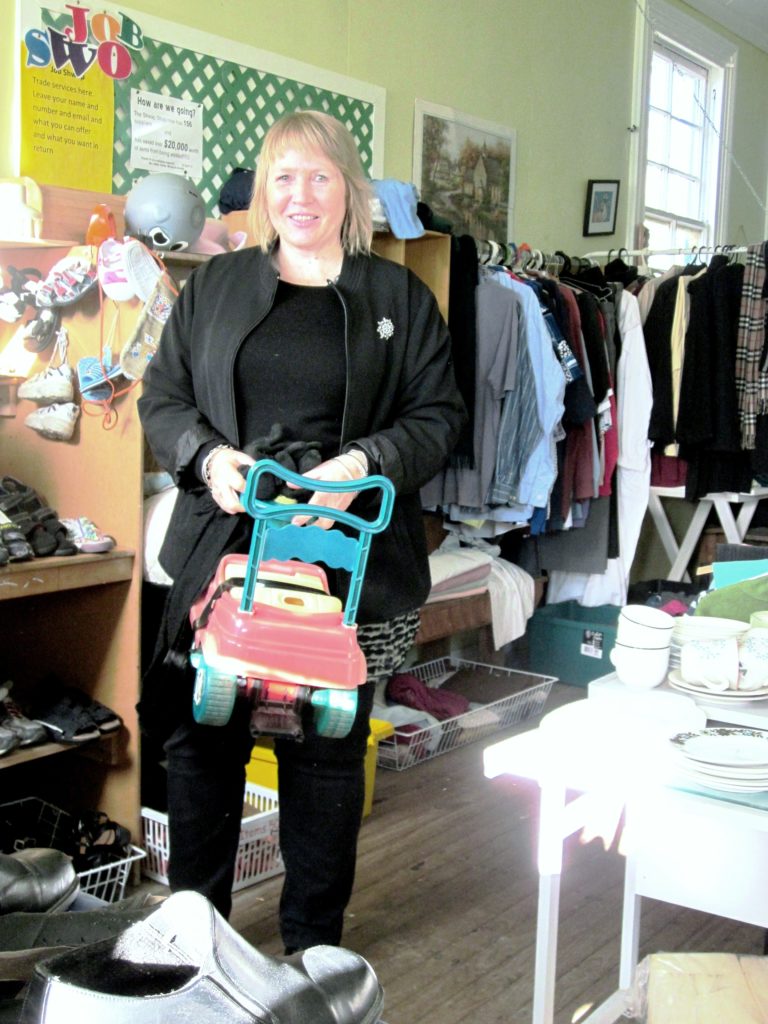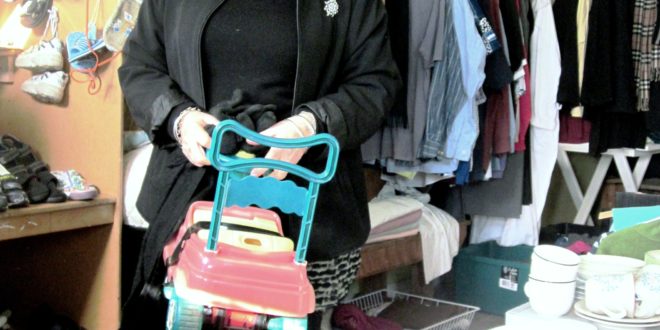
In what is possibly a one-of-a-kind in New Zealand, a small South Otago community has established an environmentally-friendly op-shop with a big difference. The ‘Swap Shop’, as it has come to be known, is in its eighth year of operation and functions entirely without the need for cash or currency of any kind! Manager Annette Patterson explains.
“The idea began with a group of students from the local area school. They were looking for concepts that would promote ‘being green’, and decided it would be good to work on a project to keep as much out of the local landfill as possible”
From this idea has developed a thriving business which, rather than making money, channels good, used items back into the community and even further afield. In fact, it’s not just locals who can be found in the store, says Annette. Shoppers and swappers come from all parts of the globe!
“Word has got around the backpacking and campervan community, and we often have young people calling in to look for sleeping bags, hiking gear, packs and tents. They pop in particularly when there’s a sudden change of weather, which isn’t unusual in our part of the country, and they find they haven’t brought enough warm (or cool) clothing with them.”
The Swap Shop operates out of what was the local scout hall, which is offered to the project rent-free. Running costs are kept to virtually zero with the shop’s staff donning warm clothes in winter to avoid heating costs, and forgoing electricity in favour of natural lighting. Annette’s DIY husband Murray has erected hanging clothing space.
The shop’s stock arrives by the carton load – there is never a shortage. Staff sort it all, and issue credit notes to those who drop off the goods. The donors then use these credit notes to ‘purchase’ goods for themselves.
“It’s a roundabout,” says Annette, “but every now and again we get too much stock, and have to help it on its way.”

Annette certainly isn’t talking about a trip to the landfill. Instead, ‘sale days’, when goods are ‘half-price’, help shift the excess. There is also an arrangement with local second-hand stores to take larger items that the shop can’t house in return for donations of small items, while celebratory store-birthday vouchers are gifted to shoppers so they can ‘buy’ without having necessarily contributed goods. And if a traveller calls in with nothing to donate but still wants to ‘buy’, Annette is sure to make them welcome all the same.
Owaka’s Swap Shop has been so successful that in the 8 years it has been operating (for just 2.5 hours a week), it has kept over $200,000 worth of goods out of landfill. It now has five volunteer staff, never ‘sells’ less than $100 (and sometimes as much as $1,400) worth of goods on the one day it is open, and shows no signs of slowing down. It’s been recognised with a local community services award.
In the words of one of the students who first helped establish the shop: “What I think is cool is that people get something for nothing. And it’s something that would have been thrown away if the Swap Shop hadn’t been here to recycle it.”
To learn more about the Owaka Swap Shop check out their Facebook page.









Join the Discussion
Type out your comment here:
You must be logged in to post a comment.